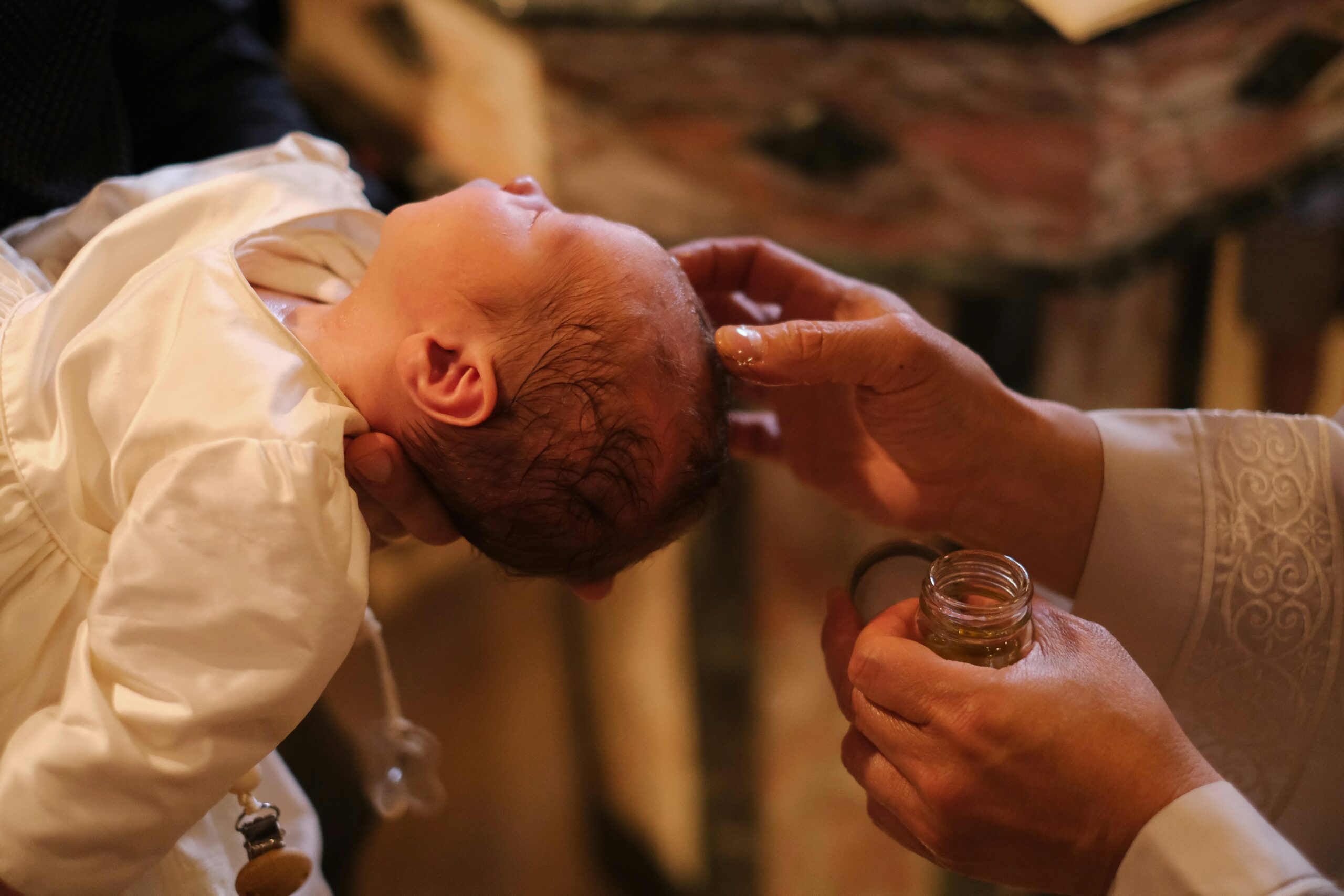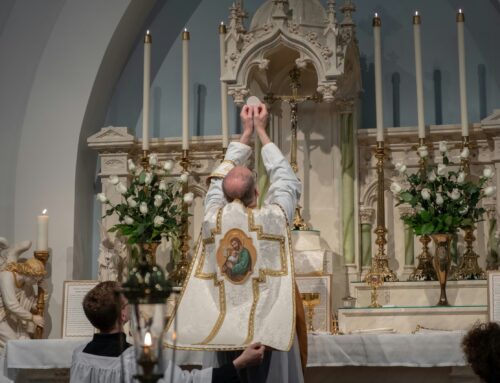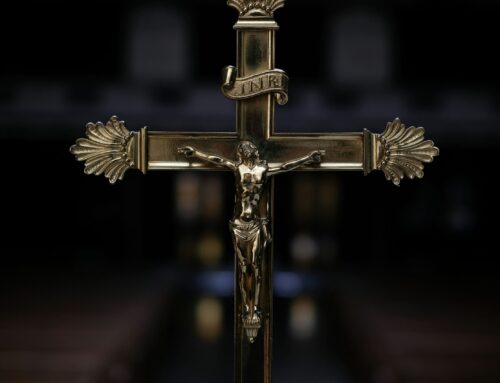Baptism is often referred to as the gateway to the sacraments, and for good reason. It is the first of the seven sacraments in the Catholic Church and marks the beginning of a lifelong journey of faith. Through Baptism, individuals are cleansed of original sin, welcomed into the Christian community, and initiated into the life of grace.
The Significance of Baptism
In Catholic theology, Baptism is recognized as a foundational sacrament, one that transcends mere symbolism to embody a profound spiritual reality. As the first of the seven sacraments, Baptism serves as the gateway to the Christian life, opening the door to the other sacraments and establishing the baptized person’s relationship with God and the Church. This sacrament was instituted by Christ Himself, who, in the Gospels, commands His disciples to “go and make disciples of all nations, baptizing them in the name of the Father and of the Son and of the Holy Spirit” (Matthew 28:19). This divine mandate underscores the essential role of Baptism in the life of the Church.
According to the Catechism of the Catholic Church, Baptism is necessary for salvation (CCC 1257). This teaching is rooted in the belief that through Baptism, the individual is cleansed of original sin—the sin inherited from Adam and Eve—and any personal sins, thus restoring their relationship with God. The sacrament marks the beginning of the journey toward eternal life, as it infuses the soul with sanctifying grace, the life of God within us, which makes us holy and capable of entering heaven.
Beyond the cleansing of sin, Baptism is the means by which one is incorporated into the Body of Christ, the Church. This incorporation is not simply a matter of joining a community or participating in religious rituals; it is a profound transformation that makes the baptized a new creation in Christ. The person is now a member of Christ’s Mystical Body, sharing in the life of the Church and in its mission to spread the Gospel. This connection with the Church is both spiritual and communal, linking the baptized with all other Christians, both on earth and in heaven, in a bond of faith and love.
Moreover, Baptism is the sacrament of rebirth. Jesus speaks of being “born of water and the Spirit” (John 3:5) as necessary for entering the Kingdom of God. This rebirth is a spiritual regeneration, where the individual is no longer defined by the fallen nature of humanity but is instead renewed in Christ. Through Baptism, we become children of God, adopted into His divine family, with the rights and responsibilities that come with this new identity. This adoption is not a mere legal fiction but a real transformation, making us partakers in the divine nature (2 Peter 1:4).
The reception of the Holy Spirit in Baptism is another critical aspect of its significance. The Holy Spirit, who descended upon Jesus at His own baptism in the Jordan River, is given to each baptized person, marking them as belonging to Christ and empowering them to live out their faith. The Holy Spirit works within the baptized to sanctify them, to guide them in their Christian life, and to strengthen them to resist sin and temptation. This indwelling of the Holy Spirit is the beginning of a lifelong relationship with God, one that will be deepened through the other sacraments, particularly Confirmation.
In essence, Baptism is the sacrament that initiates us into the life of grace, marks our entry into the Church, and sets us on the path to salvation. It is a profound act of God’s love and mercy, transforming us from mere creatures into His beloved children. Through Baptism, we are called to live a new life in Christ, to grow in holiness, and to participate fully in the life of the Church. This sacrament is not just a ritual; it is the beginning of our eternal journey with God.
The Ritual of Baptism
The ritual of Baptism is rich with symbolism and tradition, each element carefully designed to convey the profound spiritual realities that occur during this sacrament. The use of water, which is central to the rite, is the most immediately recognizable aspect of Baptism. Water is a powerful symbol in the Christian faith, representing both life and purification. Just as water sustains physical life, in Baptism, it signifies the grace that sustains spiritual life. The act of pouring water over the head of the person being baptized or immersing them in water is not merely a symbolic gesture; it is a sacred act that embodies the cleansing of the soul from original sin and the beginning of a new life in Christ.
The words spoken by the priest or deacon during the pouring or immersion are equally significant. The Trinitarian formula—“I baptize you in the name of the Father, and of the Son, and of the Holy Spirit”—is rooted in Jesus’ command to His disciples in Matthew 28:19. This invocation of the Holy Trinity reflects the belief that Baptism is an act of God, in which the baptized is spiritually reborn and incorporated into the life of the Triune God. This moment is a powerful reminder of the new relationship established between the baptized and God, as they are now marked as His child, a member of the Church, and a follower of Christ.
In addition to water, several other symbols and rituals are integral to the Baptism ceremony, each adding layers of meaning to the sacrament.

Baby being anointed with oil during Baptism
1. The Anointing with Holy Oil
The anointing with holy oil, also known as the Oil of Chrism, is a significant part of the Baptismal rite. In ancient times, anointing with oil was used to set apart individuals for a special role, such as kings, prophets, and priests. In Baptism, this anointing signifies that the baptized person is now set apart for a life dedicated to God. The Oil of Chrism is blessed by the bishop during the Chrism Mass of Holy Week and is used to anoint the crown of the head of the baptized. This anointing symbolizes the gift of the Holy Spirit, who strengthens the newly baptized to live out their Christian vocation. It is a sign that they are now anointed as members of Christ, who is “the Anointed One,” and shares in His threefold mission as priest, prophet, and king.
2. The White Garment
The white garment given to the newly baptized is another powerful symbol in the ritual. White is traditionally associated with purity and new beginnings. In the context of Baptism, the white garment represents the purity of the soul that has been cleansed of sin and made new in Christ. It signifies that the baptized person has “put on Christ” (Galatians 3:27) and is now called to live a life of holiness and righteousness. This garment is a visible sign of the inner transformation that has taken place, and it serves as a reminder to the baptized to maintain this purity throughout their life.
3. The Baptismal Candle
The baptismal candle, which is lit from the Paschal candle, symbolizes the light of Christ that has entered the life of the baptized. The Paschal candle itself represents Christ, who is the Light of the World (John 8:12), and by lighting the baptismal candle from it, the Church visually expresses that the baptized person is now a bearer of Christ’s light. This light is not meant to be hidden but to shine forth in the world, guiding the baptized to live as a witness to the Gospel. The presentation of the baptismal candle to the newly baptized or their godparents comes with the exhortation to keep the flame of faith alive in their hearts, so that when the Lord comes, they may go out to meet Him with all the saints in the heavenly kingdom.
4. The Ephphetha Rite
In some traditions, the Ephphetha rite may be included in the Baptism ceremony. The priest or deacon touches the ears and mouth of the baptized, saying, “Ephphetha, that is, be opened.” This rite, based on the Gospel account of Jesus healing the deaf and mute man (Mark 7:34), symbolizes the opening of the baptized person’s ears to hear God’s Word and their mouth to proclaim His praise. It is a prayer that the baptized will be open to the teachings of Christ and become a faithful witness to His love.
These rituals and symbols together create a rich tapestry of meaning that reflects the depth and significance of Baptism. They serve not only as outward signs of the grace conferred but also as enduring reminders of the spiritual realities that are now present in the life of the baptized. Through these sacred actions, Baptism is celebrated not just as a ritual of initiation, but as a profound encounter with the divine, marking the beginning of a new and eternal life in Christ.
Who Can Receive Baptism in the Catholic Church?
Baptism is available to anyone who has not already been baptized. In the Catholic Church, both infants and adults can be baptized. Infant Baptism has been a long-standing tradition, reflecting the belief that even the youngest members of the Church should be cleansed of original sin and brought into the community of faith as early as possible. For adults, Baptism typically follows a period of catechesis, where they learn about the faith and prepare to fully embrace it.
The Effects of Baptism
The sacrament of Baptism is transformative, producing several profound effects on the soul that shape the baptized person’s spiritual life and eternal destiny. Each effect reflects the depth of God’s grace and the new reality into which the baptized person is ushered.
1. Removal of Original Sin and Personal Sins
One of the most significant effects of Baptism is the complete removal of original sin—the inherited sin from Adam and Eve that separates humanity from God. Baptism washes away this original sin, restoring the individual to a state of grace. For those who are baptized as adults, Baptism also forgives all personal sins committed prior to the sacrament, whether mortal or venial. This cleansing power of Baptism means that the baptized person is spiritually reborn, freed from the burden of sin, and able to begin a new life in Christ. This cleansing is not just a symbolic act but a real purification that allows the soul to enter into communion with God without the barriers of sin.
2. Sanctifying Grace
Along with the forgiveness of sins, Baptism infuses the soul with sanctifying grace. Sanctifying grace is the divine life of God within the soul, a grace that sanctifies, or makes holy, the person who receives it. This grace transforms the soul, making it pleasing to God and capable of living a life of virtue and holiness. Sanctifying grace also strengthens the soul, enabling it to resist temptation and grow in the likeness of Christ. It is through this grace that the baptized are empowered to live out their Christian calling, participate in the sacraments, and cultivate a deep and personal relationship with God.
3. Imprinting of a Spiritual Mark (Sacramental Character)
Baptism imprints an indelible spiritual mark, or character, on the soul of the baptized. This mark signifies that the individual belongs to Christ forever and is incorporated into His Church. This sacramental character is permanent and unrepeatable; once baptized, a person cannot be baptized again, regardless of circumstances. This mark distinguishes the baptized person as a member of the Christian community and commits them to the lifelong service of God. It is a seal of God’s ownership and a pledge of the divine promises that come with being a follower of Christ. The indelible nature of this mark means that even if a baptized person were to fall away from the faith, the mark would remain as a sign of their belonging to Christ.
4. Incorporation into the Church, the Mystical Body of Christ
Baptism is also the means by which an individual is incorporated into the Church, the Mystical Body of Christ. This incorporation is not merely a formal membership; it is a real and profound union with all other members of the Church, both on earth and in heaven. By being baptized, a person becomes part of a spiritual family that transcends time and space, united with the saints in heaven and the faithful on earth. This union brings with it a share in the Church’s mission to evangelize and sanctify the world, as well as the communal graces and benefits that come from being part of the Body of Christ. Through this incorporation, the baptized person is also called to actively participate in the life of the Church, through prayer, sacraments, and service to others.
5. Promise of Eternal Life
Finally, Baptism bestows upon the individual the promise of eternal life. This promise is contingent upon the person’s faithfulness to the grace received in Baptism. By removing sin and filling the soul with sanctifying grace, Baptism sets the person on the path to salvation. It is the beginning of a journey toward heaven, where the baptized hope to enjoy eternal communion with God. This promise of eternal life is not merely a distant hope but a present reality that shapes the life of the baptized. It gives them the confidence to live according to God’s will, knowing that their ultimate destiny is to be with Him forever.
Ultimately, the effects of Baptism are profound and life-changing. These effects underscore the significance of Baptism as not just a ritual of initiation but as a sacrament that fundamentally transforms the soul, aligns it with God’s will, and prepares it for a life of holiness and ultimate union with God in heaven. Through Baptism, the baptized are called to live out the graces they have received, growing in faith, hope, and love as they journey toward their heavenly home.
Living Out Our Baptismal Call
Baptism is not just a one-time event; it is a call to live a Christian life. The graces received in Baptism empower the baptized to live according to the teachings of Christ and the Church. It is a call to holiness, to participate in the life of the Church, and to be a witness to the Gospel in the world. As Catholics, we are encouraged to remember our Baptism daily, renewing our commitment to Christ and the mission of the Church.
Learn More About Baptism on Catholic Radio
Catholic Baptism is a profound sacrament that serves as the foundation of the Christian life. It is the first step in our spiritual journey, opening the door to the other sacraments and the grace that flows from them. By understanding the significance of Baptism, we can better appreciate our own baptismal call and the lifelong mission it entails. As we continue this series on the Seven Sacraments, we’ll explore each one in turn, beginning with this essential gateway to the Christian faith.
Learn more about the 7 sacraments each day on Catholic Radio Network. Download the Catholic Radio Network App today or listen live online.







Leave A Comment